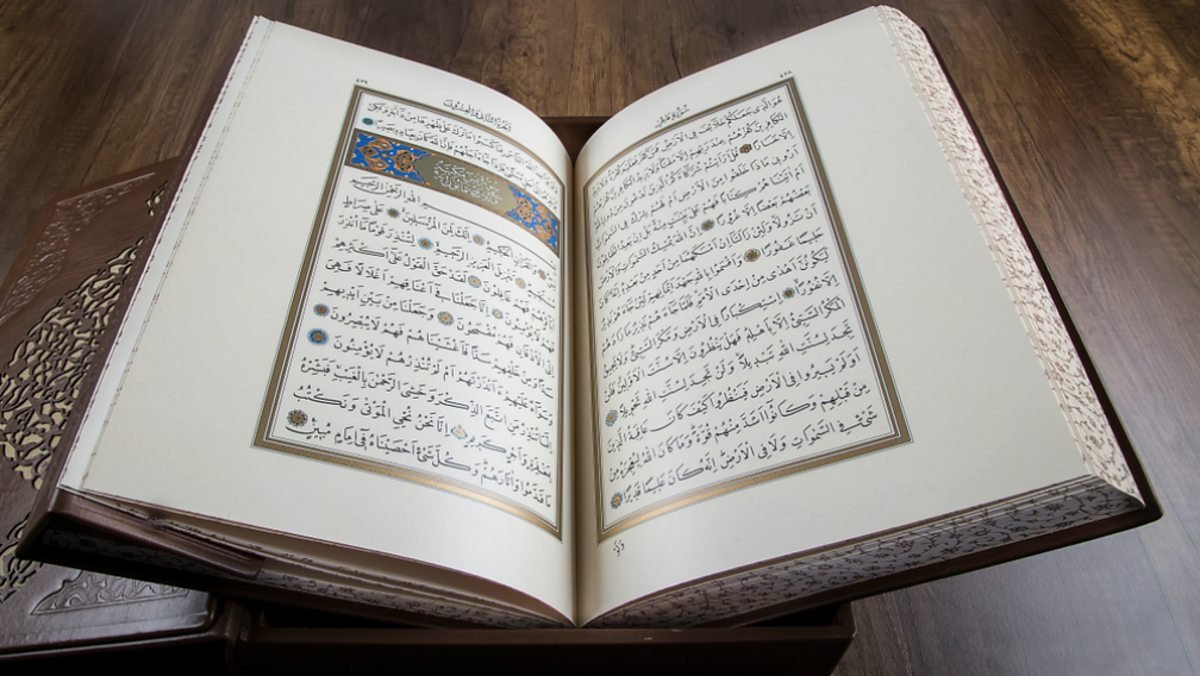The Quran: The Apex of Divine Revelation
The Quran, for Muslims, is not merely a book but the literal and unadulterated word of God, revealed to Prophet Muhammad (peace be upon him) over a period of 23 years through the Angel Gabriel [1]. Its preeminence stems from its role as the final and complete revelation, perfecting and superseding all previous divine messages [1][4]. A central tenet of Islamic faith is the miraculous preservation of the Quran in its original Arabic text, a claim supported by historical evidence and scholarly consensus [1][5]. Unlike earlier scriptures, Muslims believe Allah Himself guaranteed the Quran’s protection from any alteration, addition, or deletion since its revelation over 14 centuries ago [1][6]. This preservation was achieved through a dual, rigorous method: immediate transcription by scribes under the Prophet’s supervision onto available materials, and widespread memorization by thousands of companions, ensuring an unbroken chain of oral and written transmission across generations [5][7]. The linguistic eloquence and coherence of the Quran are considered inimitable, serving as a profound testament to its divine origin and challenging humanity to produce anything comparable [1][8]. As a universal message, the Quran provides comprehensive guidance on theology, morality, ethics, law, and spirituality, serving as the ultimate authority for Muslims in all aspects of life [1][4].
The Previous Books: Divine Origin and the Concept of Tahrif
Integral to Islamic faith is the belief in the original divine revelation of books sent before the Quran, including the Torah (Tawrat) given to Prophet Moses, the Psalms (Zabur) to Prophet David, and the Gospel (Injil) to Prophet Jesus, peace be upon them all [1][3]. The Quran also mentions the Scrolls of Abraham and Moses, affirming a continuous chain of divine guidance [3][4]. Muslims are obligated to believe in the authentic, untampered forms of these scriptures as true words of God, and denying their original divine revelation is considered disbelief in Islam [6][9]. However, the Islamic perspective distinguishes between the original revelation and the current versions of these books due to the concept of Tahrif (Arabic for ‘distortion’ or ‘corruption’) [10][11]. This concept posits that the original texts of the Torah, Psalms, and Gospel, as revealed by God, underwent alterations over time [4][6]. Tahrif can manifest in two primary forms: Tahrif al-nass, referring to textual alteration where words or phrases were changed, added, or removed; and Tahrif al-mana, which denotes the distortion of meaning through misinterpretation or misapplication of the original divine message, even if the text itself remained largely unchanged [10][12]. This believed human intervention, coupled with the absence of a divine pledge for their preservation (unlike the Quran), led to their perceived loss of original purity [4][6]. Consequently, while Muslims revere the original divine messages, they do not consider the present-day versions of these scriptures to be entirely reliable or perfectly preserved reflections of God’s uncorrupted word [4][13].
Interrelationship and Significance: Confirmation, Abrogation, and Universal Message
The Quran’s relationship with previous scriptures is multifaceted, characterized by confirmation, correction, and abrogation. It affirms the fundamental truths found in earlier revelations, such as the absolute Oneness of God (Tawhid), the concept of prophethood, the Day of Judgment, and the importance of righteous conduct [1][4]. This continuity underscores the singular, consistent divine message delivered through various prophets across different eras [14][15]. The Quran acts as a “criterion” (Muhaimin) over these earlier books, meaning it safeguards, stands witness to, and upholds the truths within them, while simultaneously clarifying or correcting any errors or fabrications that may have entered them [5][6]. This corrective role is crucial from an Islamic theological standpoint, ensuring the purity of God’s message. Furthermore, the Quran introduces the concept of naskh (abrogation), where specific laws or rulings from previous scriptures are superseded by the more comprehensive and universal laws revealed in the Quran [6][9]. While fundamental principles like the Oneness of Allah remain un-abrogated, the specific legal codes applicable to earlier communities are replaced by the final Islamic Sharia, which is considered suitable for all times and places [16][17]. This dynamic relationship highlights Islam’s view of itself not as a new religion, but as the culmination and perfection of the monotheistic tradition, providing humanity with a complete and eternally preserved guide for all aspects of life [4][14].
In conclusion, the belief in Divine Books is a cornerstone of Islamic faith, underscoring the consistent divine communication with humanity. This belief necessitates acknowledging the original divine revelation of scriptures like the Torah, Psalms, and Gospel, recognizing their foundational role in guiding earlier communities. However, it also firmly establishes the Quran as the final, perfectly preserved, and comprehensive divine message, which confirms universal truths while correcting and superseding any alterations found in previous texts. This intricate theological framework provides Muslims with a complete and enduring source of guidance, connecting them to a lineage of prophets and revelations culminating in Islam.



